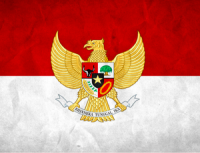About WHO Country Office of Indonesia
WHO Country Office of Indonesia: Leading the Way in Global Health
The World Health Organization (WHO) is a specialized agency of the United Nations that is responsible for directing and coordinating international health efforts. With a presence in over 150 countries, WHO works to promote health, keep the world safe, and serve the vulnerable. One such country office is located in Indonesia, where WHO has been working tirelessly to improve public health outcomes for over 60 years.
The WHO Country Office of Indonesia was established in 1951 and has since played a critical role in shaping the country's healthcare landscape. The office works closely with government agencies, non-governmental organizations (NGOs), academic institutions, and other partners to address key health challenges facing Indonesians.
One of the primary areas of focus for WHO Indonesia is communicable diseases. The country faces significant challenges related to infectious diseases such as tuberculosis (TB), malaria, dengue fever, and HIV/AIDS. Through its partnerships with local organizations and government agencies, WHO Indonesia has implemented numerous programs aimed at preventing these diseases from spreading further.
Another area where WHO Indonesia has made significant strides is maternal and child health. Despite progress made over recent years, maternal mortality rates remain high in many parts of the country due to factors such as poor access to healthcare services and inadequate nutrition during pregnancy. To address this issue head-on, WHO Indonesia has worked with partners across sectors to improve access to quality maternal care services.
In addition to its work on communicable diseases and maternal/child health issues, WHO Indonesia also focuses on non-communicable diseases (NCDs). These include chronic conditions like diabetes, cardiovascular disease (CVD), cancer - which are becoming increasingly prevalent across all age groups throughout Southeast Asia region including Indonesian population - due largely because lifestyle changes that have occurred over recent decades including urbanization & globalization trends that have led people towards unhealthy diets & sedentary lifestyles . To combat this trend ,WHO indonesia works closely with local governments & NGOs on initiatives aimed at promoting healthy lifestyles through education campaigns about healthy eating habits , physical activity promotion etc .
Overall ,the work done by WHO Country Office of indonesia plays an important role not only within Indonesian borders but also globally . By working collaboratively with various stakeholders including governments ,NGOs & academic institutions they are able make significant contributions towards improving public health outcomes both locally as well as internationally .


